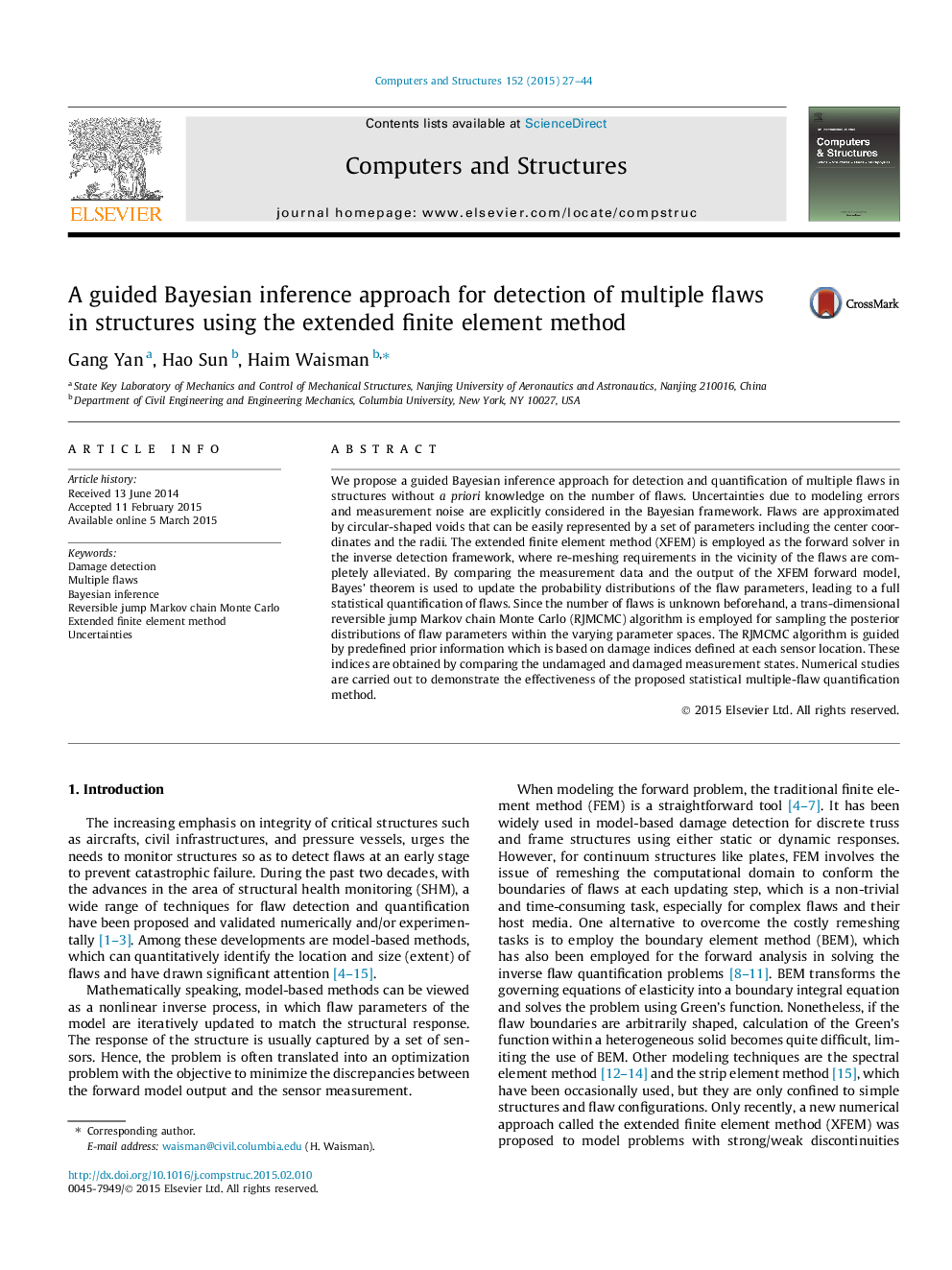| Article ID | Journal | Published Year | Pages | File Type |
|---|---|---|---|---|
| 6924485 | Computers & Structures | 2015 | 18 Pages |
Abstract
We propose a guided Bayesian inference approach for detection and quantification of multiple flaws in structures without a priori knowledge on the number of flaws. Uncertainties due to modeling errors and measurement noise are explicitly considered in the Bayesian framework. Flaws are approximated by circular-shaped voids that can be easily represented by a set of parameters including the center coordinates and the radii. The extended finite element method (XFEM) is employed as the forward solver in the inverse detection framework, where re-meshing requirements in the vicinity of the flaws are completely alleviated. By comparing the measurement data and the output of the XFEM forward model, Bayes' theorem is used to update the probability distributions of the flaw parameters, leading to a full statistical quantification of flaws. Since the number of flaws is unknown beforehand, a trans-dimensional reversible jump Markov chain Monte Carlo (RJMCMC) algorithm is employed for sampling the posterior distributions of flaw parameters within the varying parameter spaces. The RJMCMC algorithm is guided by predefined prior information which is based on damage indices defined at each sensor location. These indices are obtained by comparing the undamaged and damaged measurement states. Numerical studies are carried out to demonstrate the effectiveness of the proposed statistical multiple-flaw quantification method.
Keywords
Related Topics
Physical Sciences and Engineering
Computer Science
Computer Science Applications
Authors
Gang Yan, Hao Sun, Haim Waisman,
